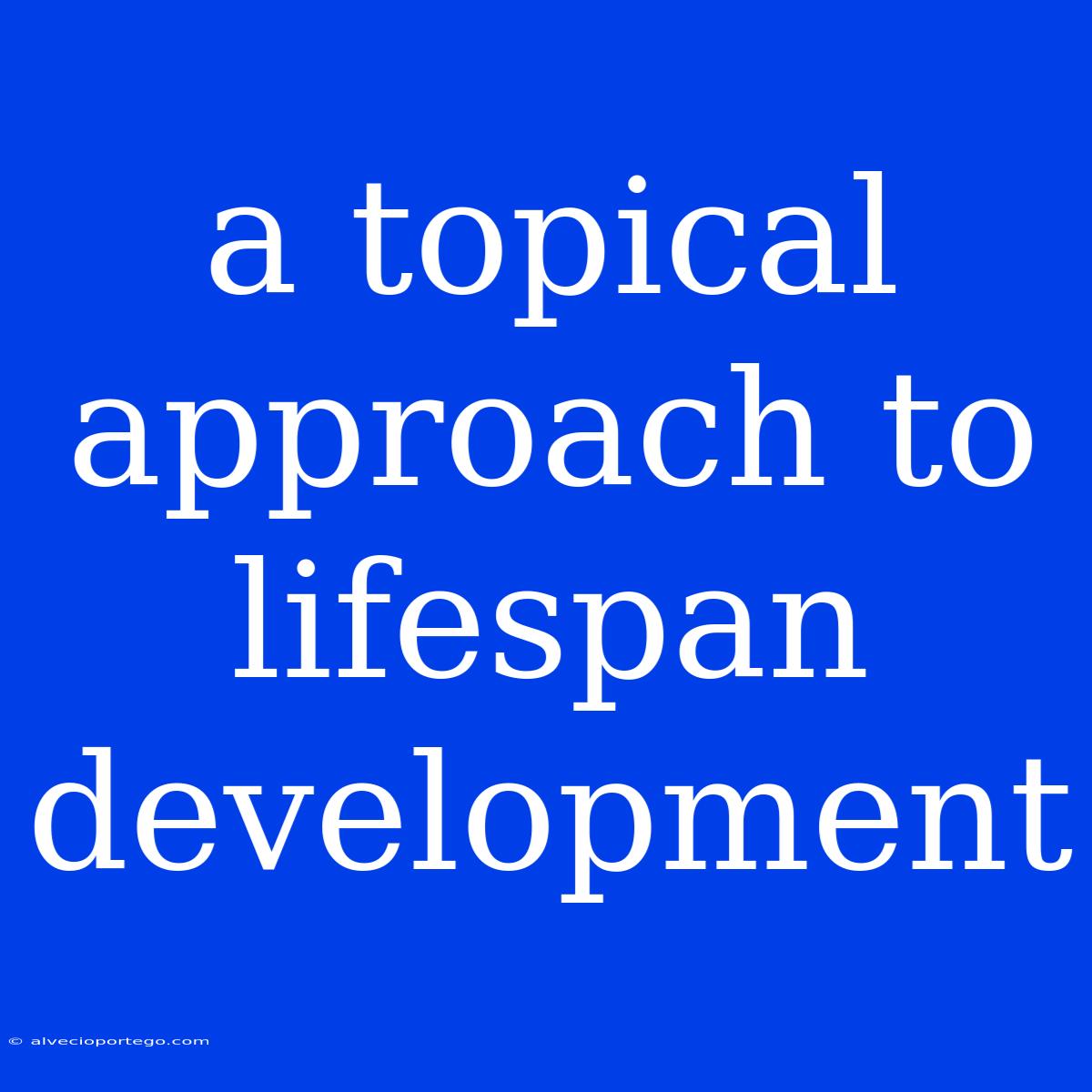A Topical Approach to Lifespan Development: Examining the Threads That Bind
The study of lifespan development is a rich tapestry woven from diverse threads: biological, cognitive, social, and emotional changes that occur throughout our lives. Traditional approaches often focus on stages, compartmentalizing human development into distinct periods like infancy, childhood, adolescence, adulthood, and old age. However, a topical approach offers a broader perspective, delving into specific themes that transcend age boundaries and connect us in shared experiences.
The Enduring Impact of Early Experiences:
Early childhood development sets the foundation for our lifelong journey. While infancy and toddlerhood are often emphasized, the impact of early experiences extends far beyond these initial years. Attachment theory, for example, highlights the lasting effects of early relationships on our sense of security and social competence. Brain development, particularly during the early years, shapes our cognitive abilities, emotional regulation, and social interactions, impacting us throughout life.
The Interplay of Biology and Environment:
Our physical and mental health are intertwined with biological factors like genetics and neurochemistry, but they are also influenced by environmental factors like nutrition, stress, and social support. Epigenetics, the study of how environmental influences alter gene expression, sheds light on the complex interplay between nature and nurture. By examining this intricate relationship, we can understand how childhood experiences, including trauma or adversity, can leave lasting imprints on our physical and mental well-being.
Navigating the Challenges of Adolescence:
Adolescence is a pivotal period of rapid growth and change, marked by identity formation, social navigation, and emotional upheaval. Cognitive development during this stage allows for abstract thinking, critical analysis, and the ability to consider multiple perspectives, while social development focuses on peer relationships, navigating group dynamics, and establishing independence. Understanding the challenges of this stage, including navigating peer pressure, developing self-esteem, and managing risk-taking behaviors, is crucial for supporting adolescents in their journey.
Adapting to the Shifting Sands of Adulthood:
Adulthood is a dynamic period characterized by continuous learning, adaptation, and personal growth. Career development, relationship dynamics, family planning, and midlife transitions are just some of the themes that define this stage. Cognitive abilities continue to develop, and individuals may face challenges in maintaining their mental sharpness as they age. Social relationships evolve, and maintaining a strong social network becomes increasingly important for well-being.
Embracing the Later Years:
Aging, while often viewed negatively, is a natural and multifaceted process. Physical changes, including the decline of certain bodily functions, can be managed through healthy lifestyle choices and medical interventions. Cognitive health varies, and individuals can engage in activities to maintain cognitive function and reduce the risk of dementia. Social connections remain vital for well-being in later life, offering companionship, support, and a sense of purpose.
The Power of a Topical Approach:
Examining lifespan development through a topical lens offers a unique perspective, emphasizing the interconnectedness of human experiences. It allows us to appreciate the continuity of our development, the influence of early experiences, and the enduring impact of environmental factors. By focusing on themes that transcend age boundaries, we can better understand the challenges and opportunities facing individuals at all stages of life. This understanding, in turn, can inform policies, practices, and interventions that support healthy aging and enhance well-being throughout the lifespan.

